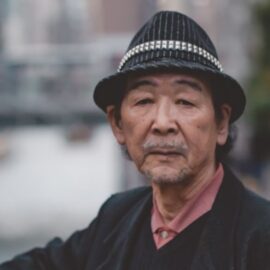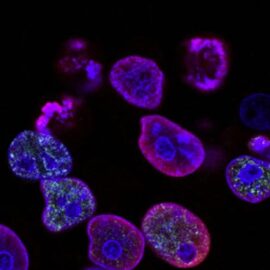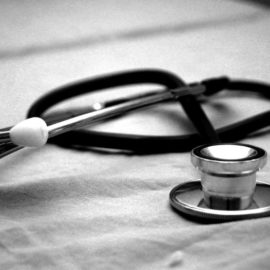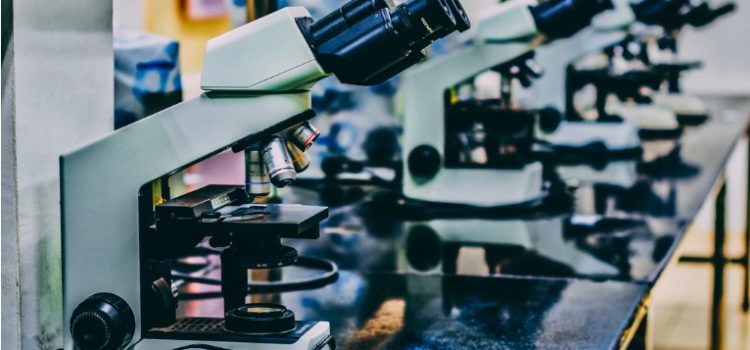
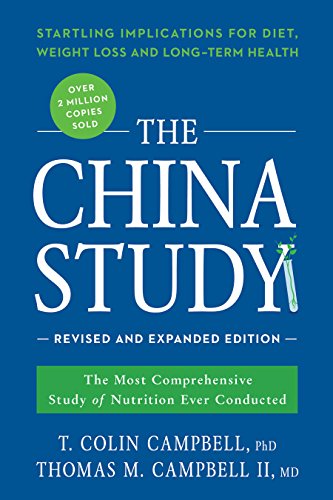
This article is an excerpt from the Shortform summary of "The China Study" by Colin Campbell. Shortform has the world's best summaries of books you should be reading.
Like this article? Sign up for a free trial here .
We’re taught to believe that science is pure and objective. But science is a human endeavor, and the scientists conducting it necessarily bring with them their own biases. But how rampant is bias in science? And how detrimental is it?
We’ll cover the research and experiences of T. Colin Campbell, one of the authors of The China Study. With over 40 years as a member of the research community, Campbell is in a good position to answer the questions, How much bias is there is science? And should the public be worried about it?
Bias in Science: Health Research
Unfortunately, bias in science is fairly common, due to the interrelated interests of the health industry, the medical world, science journalists, and researchers.
The overarching issue is that we live in a system that prioritizes the profits of a few over the health of all. Even so, there are few “bad guys” in the stories below—industries, understandably, have a product to sell, government workers have elections to win, doctors lack training in nutrition, and well-intentioned journalists and health organizations spread bad information. The bad conduct of the few is rarely illegal, but it’s certainly questionable, as we’ll see.
The Problem of Bias in Science
Science isn’t always the unbiased, dogged pursuit of truth we like to think it is. There are multiple issues that allow science as an institution to promote unhealthy habits and spread bad information.
Problem #1: Scientists’ Associations with Food and Drug Companies
Many researchers receive personal compensation for advising food and drug companies. This biases them toward research that upholds the status quo and benefits these companies. There is nothing illegal about getting compensation from the industry while doing research for a university or other research institution. This is one factor of continuing bias in science.
Problem #2: Research Is Often Designed by Food and Drug Companies
Many researchers also receive compensation to conduct research designed to favor certain hypotheses over others. Often, these studies are devised by employees of the company rather than the researchers. Companies can then cherry-pick results, promoting some and burying others. Again, this isn’t illegal (although many would say it’s unethical), and it’s a contributing factor to bias in science.
Problem #3: Personal Bias
Scientists are human and have the same biases as everyone else. For example, many have lost family members to cancer, and they don’t want to explore the idea that the food choices of their loved ones played any part in their illnesses. Many scientists also love eating meat and dairy themselves. This prejudices them against research that would link these food groups to disease.
Problem #4: Greed
Most scientists are honorable and really do have the best interests of the public at heart. But a few will sell their souls for money and power, such as a researcher who sat across from Tom Brokaw on the morning news and praised the health of McDonald’s hamburgers. These few can do widespread damage, hurting the credibility of institutions and spreading bias in science.
T. Colin Campbell’s Experience as a Researcher
As a researcher for over 40 years, Campbell conducted many studies and was a member of numerous scientific associations and committees. He became disillusioned with the scientific community as he watched his colleagues succumb to the interests of the food and drug industries and let their personal scientific biases blind them to important findings.
Bias in Science, Example #1: The Public Nutrition Information Committee
In the late 1970s and early 80s, the president of the National Academy of Sciences (NAS) wanted to bring scientists from outside the NAS to write a report on the connection between diet and cancer.
This angered the NAS’s Food and Nutrition Board, which wanted a monopoly on the topic of diet. Members were also irritated because they denied that food had anything to do with cancer and didn’t think the concept should be explored at all.
The Influence of Industry
Of the two leaders of the Food and Nutrition Board, one was a highly-paid consultant to the egg industry and the other earned 10% of his income from food companies that included powerful dairy corporations. Research linking diet to cancer would likely be bad for the industries they served and bad for them personally and financially.
So these pro-industry researchers decided to form a new committee to counter the findings of the NAS report on diet and cancer. This was the Public Nutrition Information Committee (PNIC). The committee’s stated (and dubious) goal was to help get “sound nutritional advice” to the public.
Campbell Gets Involved
The director of one of the PNIC’s parent societies asked the young Campbell to join the PNIC. This was before Campbell had done his landmark research on animal proteins and cancer and before he held any strong opinions about the American diet.
Of 18 PNIC members, Campbell was the only one who didn’t have ties to food and drug companies. The rest of the members received benefits like first-class travel expenses, products, and generous consulting fees from industries. This wasn’t, and still isn’t, illegal. But it potentially put them at odds with what was best for the health of the Americans they purported to serve.
Exposing “Frauds”
At the PNIC’s first meeting, one of the leaders shared a list of nutrition “scams” the group intended to expose for the benefit of the public.
One of the “frauds” was a list of 1977 dietary goals that, even in its mildness, was a milestone in public health. The list cautiously suggested that eating a little less meat and decreasing fat consumption could prevent heart disease.
Campbell spoke out in defense of these dietary goals, believing they were justified by the most recent research on the topic.
The PNIC Crumbles and the ACSH Rises
Because Campbell had revealed that he supported the idea that diet was related to disease risk, at the next meeting the members of the PNIC attempted to dissolve the committee and reconstitute it without Campbell. At the time, this attempt failed, but less than a year later, the pro-industry members did start their own organization, the American Council on Science and Health (ACSH), which is still active today.
The ACSH advertises itself as an independent, nonprofit “consumer education” program. It’s allowed to bill itself this way, even though 76% of its funding comes from corporations.
To Campbell’s disbelief, the ACSH tells consumers that reports linking cholesterol and coronary heart disease aren’t based in science and that there’s no evidence that saccharin is carcinogenic.
Bias in Science, Example #2: The American Institute for Cancer Research
Meanwhile, Campbell was working on the NAS report exploring the connection between diet and cancer, the same report that triggered the series of events described above in Example #1.
Among other guidelines, the report advised people to reduce their fat intake to 30% of their calories (an extremely moderate recommendation) and eat more fruits, vegetables, and whole grains. But even though these recommendations were relatively tame, the food industry was outraged. Within weeks of its publication, the Council on Agriculture, Science, and Technology (CAST) had collaborated with Campbell’s former PNIC colleagues to publish a report criticizing the NAS findings. They sent the CAST report to 535 members of congress.
Dozens of other organizations criticizing the NAS paper’s findings included the American Meat Institute, the National Milk Producers Federation, and United Egg Producers.
Attempts to Silence the AICR
Around this time, Campbell started advising the newly formed American Institute for Cancer Research (AICR), which worked to publicize the NAS report and its findings linking diet with cancer.
Because the AICR endorsed the NAS report, the effort to discredit the AICR was strong. National and state attorneys general questioned the AICR’s legitimacy and its fundraising process. The U.S. Post Office complained about sending free copies of the report to doctors, calling it junk mail. The president of the American Cancer Society sent a memo to local chapters warning that the doctors working for the AICR were all discredited and that some of them had spent time in prison. (None of this was true.)
The same two former colleagues who tried to reconstitute the PNIC without Campbell proposed that he be expelled from the national nutrition society they all belonged to. Campbell had to attend interviews in which he was grilled about the goals and initiatives of the AICR. If he had been kicked out, it would have been the first expulsion in the society’s history, but the members at his hearing voted against expelling him.
As Campbell’s experiences show, scientific research has a circuitous path to the public, and the politics of research committees can keep information from reaching a general audience.
Recommendation: Be Aware of Bias in Science
Be aware that not all science is unbiased. Researchers may have ties to industries and even those who don’t are human and swayed by personal scientific bias. Bias in science trickles down to the public through government nutrition recommendations and the media. Although it can be hard to identify bias or inaccurate information as a layman, always take recommendations with a grain of salt.
———End of Preview———

Like what you just read? Read the rest of the world's best summary of "The China Study" at Shortform . Learn the book's critical concepts in 20 minutes or less .
Here's what you'll find in our full The China Study summary :
- Why animal proteins (meat, milk) might cause cancer, diabetes, and other diseases
- Why the medical institution is structured to hide the truth about disease and food
- The precise diet you'll need to eat to live longer and feel happier

